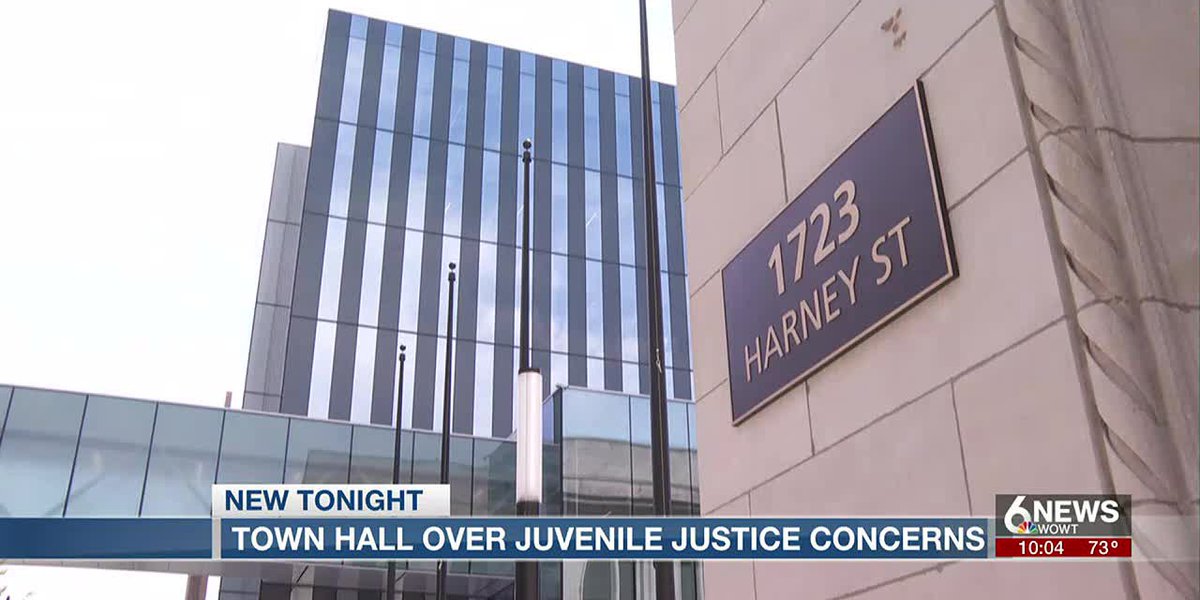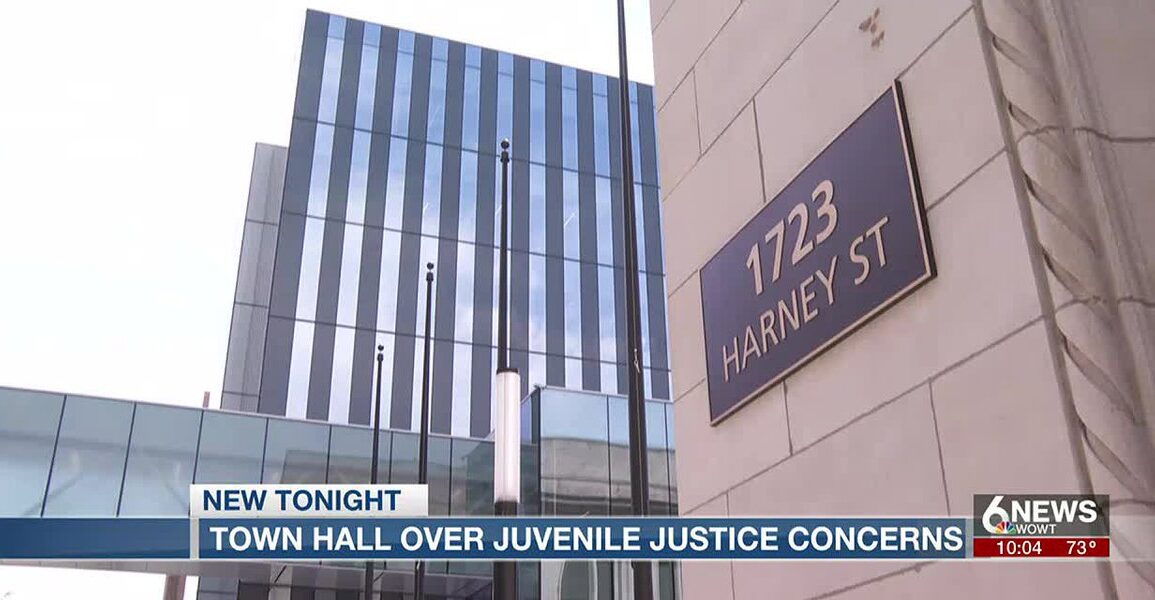
OMAHA, Neb. (WOWT) – The Omaha Police Officers Association hosted a telephone town hall Monday evening concerning juvenile justice in Douglas County.
Tuesday, Douglas County Commissioners will vote on whether to delay the opening of the new, nearly $27 million Juvenile Justice Center in downtown Omaha by at least six months.
Opening the new facility means moving those in detention out of the old facility for good.
“Long story short, I just don’t think we’re ready,” County Commissioner Mike Friend told 6 News on Monday.
The new facility can hold a maximum of 64, and the goal is that when it opens, it will only use 80% of the beds.
But as of Monday morning, there were 73 youths in the current Douglas County Youth Center.
During a telephone town hall hosted by the Omaha Police Officers Association on Monday night, Douglas County’s attorney and sheriff say that’s a big problem.
“We need to do everything we can to be able to have a facility that we can maintain for a time period to keep these people who are bad actors in detention until we figure out what we’re going to do with them in the juvenile court system,” said County Attorney Don Kleine.
“We have to keep the current youth center open,” said Douglas County Sheriff Aaron Hansen. ”If we get to a point where we have to release high-risk, repeat juvenile offenders simply because we don’t have any place to keep them, that will cost innocent people their lives.”
Friend said it’s simply a math problem, and he supports delaying the opening.
“Then it gives an opportunity, I think, opportunities to actually look at the Juvenile Justice Center and say, are we going to run two facilities for a certain amount of time, are we just going to run one, and if we’re only going to run one downtown, how long will it take for us to actually meet the requirements that that facility demands.”
Unless the majority of the seven county commissioners vote to delay the move, the plan is to move the youths in detention to the new facility starting in November and close the old facility by the end of January.
Friend said the county board’s job is to simply look at infrastructure and capacity, and he believes that’s what its vote deals with.
“If the judges determine that this amount of youth actually needs to be detained, there’s just not much we can do about it,” he said. “So we need to be ready from a public safety standpoint and we need to be ready from an implementation standpoint and what the county authority and capability really is, to deal with those numbers.”
To run both facilities, it would cost the county an additional $2.5-$3 million per year.
“I think that’s where public opinion helps commissioners like us [and] other public officials, people who make policy. It helps us make those decisions, about what’s most important to you. If it costs us $2.5 million to make sure we have the appropriate infrastructure then that’s what we’re going to have to be dealing with and what we have to communicate to the citizens of Douglas County.”
Friend said he’s eager to speak with OPOA, Kleine, and Hanson about Monday night’s townhall, and to hear what community members want.
During the call, mothers whose children were victims of crimes by repeat juveniles shared their opinions, too.
“I don’t want the facility at capacity,” said Linda, whose son was carjacked at gunpoint by a juvenile. But when we are wielding weapons and taking lives, these are serious consequences, and it doesn’t get better, these become young people who turn into adults that commit crimes.”
“All kids do not need to go to group homes, some of them need to stay in locked facilities where they can be watched,” said Alisha, whose 19-year-old son was killed by a repeat juvenile offender.
Callers with children who are or have been in the criminal justice system also spoke on the importance of having a safe place for their children to stay, so they don’t become runaways and potentially get involved in more crime.
Hanson and Kleine both say delaying the opening is best for the community, especially as they believe the proper transitional resources for juveniles outside of the locked facilities are slim.
“We don’t have that right now, so imagine we shut down our current youth center, we don’t have the infrastructure we need and now we have less beds to keep kids safe, we’re going to be in a world of hurt,” Hanson adds.
“It’s just common sense,” Kleine said.
Questions or comments from the public on the topic should be directed to OPOA at 402-393-6191.
Copyright 2023 WOWT. All rights reserved.
This post was originally published on this site be sure to check out more of their content.







